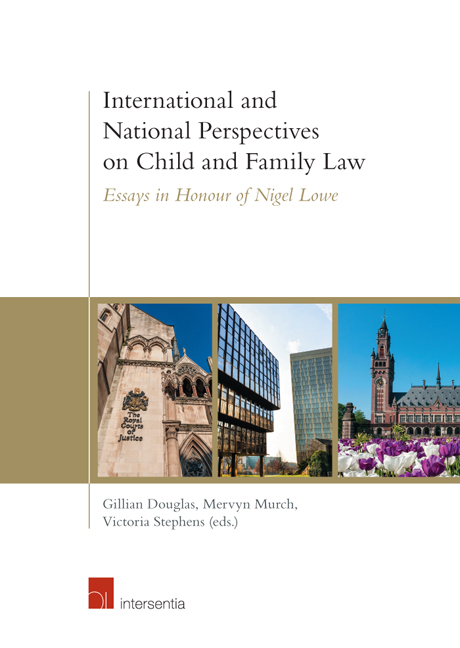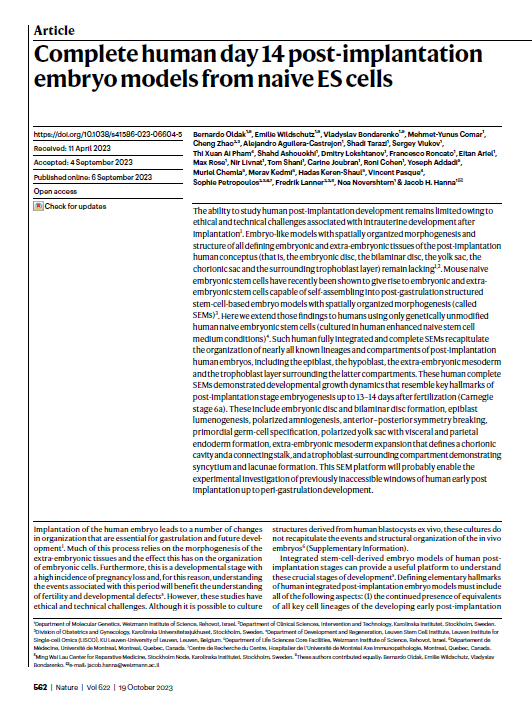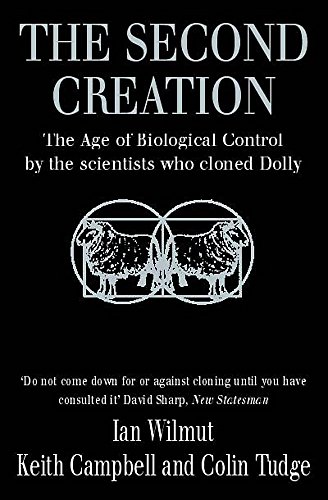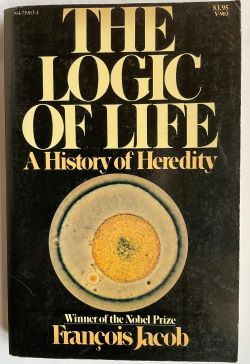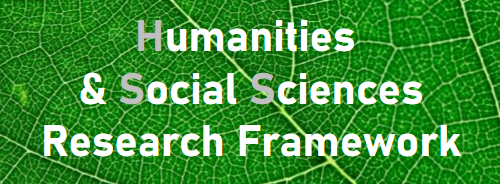Cambridge Reading Group on Reproduction brings together researchers from across the university to engage in interdisciplinary discussion, led by senior academics, all with a central theme of reproduction.
Join the conversation! All welcome, postgraduate students and staff.
Meetings take place in central Cambridge. Sessions start with an optional sandwich lunch at 12:30pm, discussion from 1-2pm, finishing by 2.30pm
-----------------------------------
Coming up in Michaelmas Term
14 October - Room CGO 9 @ Student Services Centre - Old Cavendish East Wing
Women's Health across the life course: Dr Shobi Nagraj
Assistant Professor of Primary & Community Care in the Department of Public Health & Primary Care
Reading: Bundy, Donald A et al. (2018), Investment in child and adolescent health and development: key messages from Disease Control Priorities, 3rd Edition, The Lancet 391 (10121), 687-699. DOI: http://dx.doi.org/10.1016/S0140-6736(17)32417-0.
Introduction
Life course approaches to women’s health focus on health, not as isolated events (eg: pregnancy, menopause), but as a continuum, shaped by wider biological, psychological, social and environmental factors across a woman’s entire life. In this reading group, we will explore how early experiences across the first 8000 days of life, shape health outcomes for women globally, including cardiovascular disease (the leading cause of death in women worldwide), reproductive health, mental health, and their intergenerational impacts. The review identifies critical windows of opportunity for intervention, and emphasises the importance of the social determinants of health, such as education, poverty and gender equality, and their impact upon women’s health over time. This should be a lively discussion on the wider systems in which we view women's health and how we design and deliver interventions for long-term impact.
25 November 2025 - Dr Natalie Morningstar, Department of Social Anthropology
Reading:
Reading: Morningstar, N. (2025), Life unsettled: debating abortion in the US Supreme Court and the Irish Citizens’ Assembly. J R Anthropol Inst. https://doi.org/10.1111/1467-9655.70001.
Introduction by Natalie
This article compares and contrasts debate about abortion in the US Supreme Court case Dobbs v Jackson Women's Health Organization and the Irish citizens' assembly that called for the legalisation of abortion. It asks how we can best stage debate about divisive and open-ended issues like what counts as life. Applying anthropological tools, concepts and methods to archival traces of these two events, the piece considers whether certain kinds of democratic institutions are more or less likely to facilitate productive dialogue about issues like abortion. It also explores whether liberalism is the best framework for protecting women's access to abortion.
Sign up for Michaelmas Term groups - spaces limited
-----------------------------------
EASTER TERM 2025
June's meeting was led by Peter Rugg-Gunn and Amy Wilkinson, of the Babraham Institute. Discussing epigenetic editing of human embryos.
When: Wednesday 11th June 2025 - 12:30 to 14:30
Where: SB Perham Room, Department of Biochemistry, Sanger Building, 80 Tennis Ct Rd, Cambridge CB2 1GA
For more about the group and text discussed go to the Event page
-----------------------------------
May's meeting was led by Dr Philippa Carter from The Faculty of History
When: Tuesday, 13 May, 2025 - 12:30 to 14:30
Where: Room 78, Anatomy Building, Downing Site
Text discussed with Philippa and Sonia - Sonia Wigh, 'Overcoming Childlessness: Narratives of Conception in Early Modern North India', Medical History (early view, 2025): 1–17.
-----------------------------------
LENT TERM 2025
March 2025
Led by Dr Helen Charman from The Faculty of English
'The politics of miscarriage' (Radical Philosophy 203, December 2018, pp. 62–72)
![]() The Politics of Miscarriage - Victoria Browne
The Politics of Miscarriage - Victoria Browne
Introduction:
This essay, which was later expanded into the fifth chapter of Browne's monograph Pregnancy Without Birth: A Feminist Philosophy of Miscarriage (Bloomsbury, 2023), considers the ways in which solidarity might be extended across miscarriage, pregnancy and abortion as sites of political experience and struggle. Browne's work aims to redress the surprising absence of miscarriage and stillbirth in feminist theorisations of reproductive politics, as well as offer a philosophical perspective on the experience of gestation itself.
Rooting her analysis in the rising criminalisation of miscarriage and stillbirth in the US, Browne rejects a framework of resistance to this increasingly punitive status quo that relies upon the category 'innocence'. Instead, she advocates for a 'full-spectrum' understanding of all forms of gestational experience, which centres pregnancy as an experience in its own right, rather than a process defined solely by its 'product'.
February 2025
Led by Professor Graham Burton, Emeritus Mary Marshall and Arthur Walton Professor of the Physiology of Reproduction (retired) and Founding Director of Loke Centre for Trophoblast Research
Introduction: Microchimerism; an underappreciated aspect of mother-offspring interaction or pregnancy epiphenomenon?
During pregnancy there is a bi-directional transfer of cells with stem-cell properties across the placenta; fetal cells passing to the mother and maternal cells to the fetus. In both situations a small number of the cells persist for several decades, and hence the phenomenon is referred to as microchimerism.
First recognised in the late 1990’s, there are still many unresolved questions about the significance, if any, of the traffic.
This session will focus on the biology and implications of fetal cells persisting in the mother’s body. The review by Boddy et al. is not the most recent but presents a balanced introduction to the topic. More recent considerations that we might discuss include implications for surrogacy, mother-baby bonding, and transgenerational trafficking.
MICHAELMAS TERM 2024
November 2024
Led by Dr Catherine Aiken - Honorary Consultant in Maternal and Fetal Medicine
Reading:
Sarah J. Stock, Catherine E. Aiken, Barriers to progress in pregnancy research: How can we break through? Science 380,150-153 (2023). DOI: 10.1126/science.adf9347
Introduction:
Excluding reformulations, in the past 30 years, only two drugs have been licensed for use in pregnancy. At the same time, pregnancy complications are increasing, with profound implications for immediate and life-course health of both infants and mothers. This paper discusses some of the barriers to progress in developing safe and effective treatments for pregnancy complications, including systemic social and political factors; deliberate exclusion of pregnant women from research; the complexity of the dynamic maternal-placental-fetal system; uncertainty about the relevance of in vitro and animal models to inaccessible in vivo systems and processes; and disparities in pregnancy outcomes within and between countries.
-------------------------
OCTOBER 2024
Led by Professor Samita Sen, Faculty of History.
Text:
Ferguson, S. 2017. Children, Childhood and Capitalism. In Social Reproduction Theory: Remapping
Class, Recentering Oppression, ed. Tithi Bhattacharya. London: Pluto, pp. 112-30 (Chapter 6)
Introduction to the reading by Samita Sen
The essay explores the dynamic and contested relationship between capitalism and childhood. It maps the contradictions of the relations of social reproduction within which childhood is historically constructed.
Rather than starting from consumption, as is more usual these days, the essay explores the relationship between childhood and labour. There have been historical and contemporary accounts of child labour, that is, situations in which children are directly engaged in labouring relations.
This essay addresses the child as future labour. It underlines the tension between the social reproduction of children and childhoods and the expansion of capitalism. It illuminates some of the ambiguities embedded in the figure of the child within capitalism, asking also whether there are radical political possibilities in imaginaries of childhood.
EASTER TERM 2024
Friday 21st June
Room 78, Anatomy Building
Professor Ashley Moffett, Professor of Reproductive Immunology in the Department of Pathology.
Introduction: Recent articles in the Guardian (see links below) discuss the increased prevalence of pre-eclampsia in women with African ancestry. This is well known, as is the associated increased risk of stillbirth, preterm labour and fetal growth restriction in these women all leading to poor maternal and fetal outcomes. These conditions arise because of defective placentation early in pregnancy and affect at least 10% of pregnancies.
-------------------------
Thursday 30th May - Room 78, Anatomy Building with Dr Emma Pomeroy
There is an obstetrical dilemma: Misconceptions about the evolution of human childbirth and pelvic form
American Journal of Biological Anthropology: Volume 181, Issue 4 Aug 2023
-------------------------
LENT TERM 2024
Wednesday 27 February 2024
Jens M. Scherpe, 'Breaking the Existing Paradigms of Parent–Child Relationships', in International and National Perspectives on Child and Family Law, pp. 343 - 359 (CUP, 2018). DOI: https://doi.org/10.1017/9781780687001.028. Introduced by Dr Brian Sloan (Law).
-------------------------
Wednesday 24 January 2024
Oldak, B., Wildschutz, E., Bondarenko, V. et al. Complete human day 14 post-implantation embryo models from naive ES cells. Nature 622, 562–573 (2023). https://doi.org/10.1038/s41586-023-06604-5. Introduced by Professor Kathy Niakan (PDN).
-------------------------
Tuesday 28 November 2023The Second Creation by Ian Wilmut, Keith Campbell and Colin Tudge. Introduced by Professor Sarah Franklin (Sociology).
-------------------------
Wednesday 11 October 2023
François Jacob, The Logic of Life (selection). Introduced by Professor Nick Hopwood (HPS).
For the first session in October we read parts of a history of biology that proposed an influential argument about how research came to focus on reproduction.
-------------------------
Thanks to the School of the Humanities and Social Sciences for research framework funding




